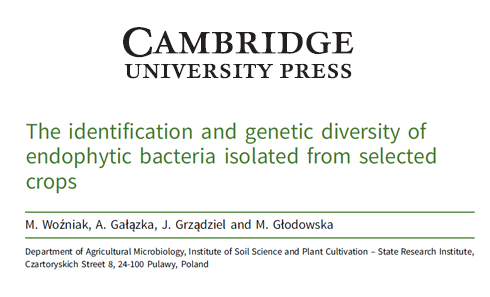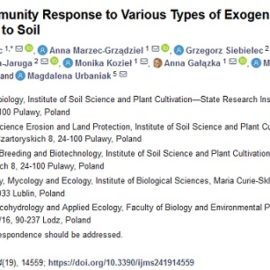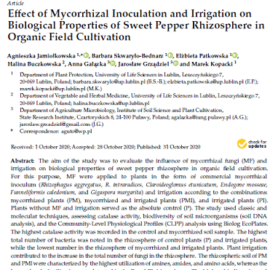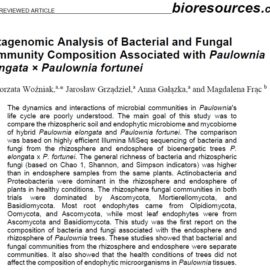The identification and genetic diversity of endophytic bacteria isolated from selected crops. Woźniak M., Gałązka A., Grządziel J., Głodowska M. ; The Journal of Agricultural Science, 2018, 1-10. DOI: 10.1017/S0021859618000618
Streszczenie
A collection of 45 isolates was created based on bacteria isolated from maize, broad bean, wheat, rye and wild plants such as horsetail and burdock. The aim of the current study was to isolate the bacteria, and then identify and assess the degree of genomic diversity. The molecular identification of microsymbionts isolated from the endosphere (root and stem) of plants grown in agricultural soils was performed using 16S rRNA gene sequencing. To evaluate the genomic diversity between strains that occurred in multiple host plants, 18 bacterial isolates representing four species were subjected to denaturing gradient gel electrophoresis. The 16S rDNA analysis assigned all bacterial isolates to ten genera, from which Rhizobium was represented by 19 isolates, Delftia by 11, Agrobacterium by five, Stenotrophomonas by three, Brevundimonas by two and Novosphingobium, Variovorax, Collimonas, Achromobacter and Comamonas by only one isolate. Furthermore, the genomic diversity of the 11 isolates of Delftia sp. was assessed using the BOX – polymerase chain reaction (BOX-PCR) and enterobacterial repetitive intergenic consensus – PCR (ERIC-PCR) methods. Typing patterns and analysis using BOX-PCR and ERIC-PCR data demonstrated similarities among the tested isolates. In general, the results obtained with BOX-PCR and ERIC-PCR were in good agreement. However, a greater degree of differentiation patterns of the genomic DNA was obtained in the ERIC-PCR method.



